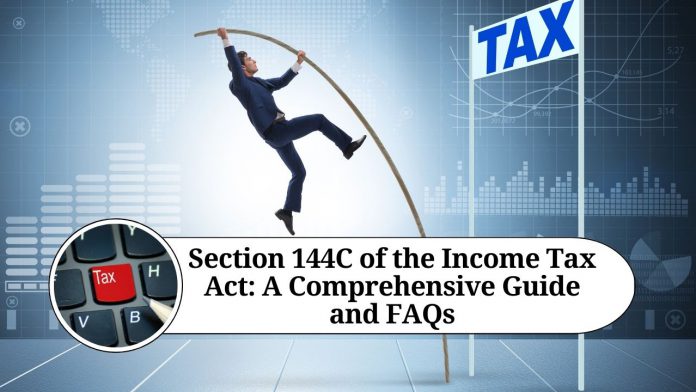Section 144C of the Income Tax Act, of 1961, deals with the procedure for a draft assessment order. The section was introduced in 2017 as part of the Finance Act, 2017, to bring in more transparency and accountability in the assessment process. In this blog, we will discuss the various provisions of Section 144C of the Income Tax Act.
Procedure for draft assessment order:
As per Section 144C, when the assessing officer completes the assessment proceedings, he shall pass a draft assessment order, which shall include the total income or loss, the amount of tax payable or refundable, and other relevant details. The draft assessment order shall be passed after giving the assessee an opportunity of being heard and after taking into consideration all the relevant material.
Dispute resolution panel:
Once the draft assessment order is passed, it is then forwarded to the Dispute Resolution Panel (DRP) by the assessing officer. The DRP is an independent body comprising three commissioners who are appointed by the Central Board of Direct Taxes. The DRP’s primary function is to provide an independent and impartial review of the draft assessment order passed by the assessing officer.
The opportunity of being heard:
The DRP shall issue a notice to the assessee and provide an opportunity of being heard. The assessee can file objections to the draft assessment order within thirty days from the date of receipt of the notice. The DRP shall consider the objections and pass necessary orders.
The time limit for passing the order:
The DRP shall pass an order within nine months from the end of the month in which the draft assessment order was forwarded to it by the assessing officer. The order passed by the DRP shall be binding on the assessing officer.
Appeal against the order:
If the assessee is aggrieved by the order passed by the DRP, he can file an appeal before the Income Tax Appellate Tribunal (ITAT) within sixty days from the date of receipt of the order.
Conclusion:
Section 144C of the Income Tax Act provides for a fair and transparent assessment
Section 144C of the Income Tax Act, 1961, was introduced in 2017 as part of the Finance Act, 2017, to bring in more transparency and accountability in the assessment process. The section deals with the procedure for a draft assessment order and the role of the Dispute Resolution Panel (DRP) in the assessment process.
Read more useful content:
- section 145 of income tax act
- section 10e of income tax act
- section 9 of the income tax act
- section 94b of income tax act
- section 206aa of income tax act
frequently asked questions (FAQs) related to Section 144C of the Income Tax Act:
What is Section 144C of the Income Tax Act?
Section 144C of the Income Tax Act, 1961, deals with the procedure for a draft assessment order and the role of the Dispute Resolution Panel (DRP) in the assessment process.
Who can file objections to the draft assessment order under Section 144C?
The assessee can file objections to the draft assessment order within thirty days from the date of receipt of the notice issued by the DRP.
What is the role of the Dispute Resolution Panel (DRP) under Section 144C?
The DRP’s primary function is to provide an independent and impartial review of the draft assessment order passed by the assessing officer.
What is the time limit for passing the order by the DRP under Section 144C?
The DRP shall pass an order within nine months from the end of the month in which the draft assessment order was forwarded to it by the assessing officer.
Can an assessee appeal against the order passed by the DRP under Section 144C?
Yes, if the assessee is aggrieved by the order passed by the DRP, he can file an appeal before the Income Tax Appellate Tribunal (ITAT) within sixty days from the date of receipt of the order.
What is the importance of Section 144C?
Section 144C is an important provision in the Income Tax Act as it ensures that the assessment process is fair and transparent. The provisions of this section are designed to provide a fair opportunity for the assessee to present their case and ensure that there is no prejudice to the assessee in the assessment process.




















